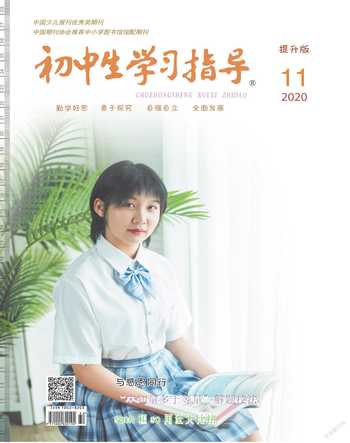走出比较级和最高级用法中的误区
梅秀彩
誤区一:比较对象非同类
两个人或事物进行比较时要用比较级,这时常用到连词than,且进行比较的两个人或事物必须属于同一类,非同类的人或事物一般不能比较,否则会造成不合逻辑的错误。例如:
1. 你们的教室比我们的教室亮。
误:Your classroom is brighter than us.
正:Your classroom is brighter than ours.
2. 冬天长春的天气比广州的天气冷。
误:In winter the weather of Changchun is colder than Guangzhou.
正:In winter the weather of Changchun is colder than that of Guangzhou.
误区二:乱用比较级修饰词
比较级前一般可用much, a little, a lot , still, a bit ,far, even等修饰词来说明程度, 但不能用very, quite, too, so等修饰。例如:
1. I think the mooncakes with meat in them are much more delicious than the ones with nuts in them.
我认为肉馅月饼比果仁馅月饼好吃的多。
2. Lily’s mooncake is a little smaller than Li Lei’s.
莉莉的月饼比李磊的月饼小一点。
误区三:比较级前全不用定冠词 the
比较级前一般不用冠词,但在下列情况下比较级前却常常用定冠词the。
1.在含比较级的句子中有of the two 这类意义的词组时。例如:
Lucy is the taller of the two.
露西是两个人中较高的那一个。
He is the thinner of the two boys.
他是那两个男孩中较瘦的一个。
2.“the+比较级,the+比较级”是常见结构,表示“越……,就越……”之意。例如:
The harder you study, the more you will learn.
你越努力,就学得越多。
The busier he is ,the happier he feels.
他越忙就越高兴。
误区四:形容词最高级前都用定冠词the
形容词最高级前一般应用定冠词the,副词最高级前则可用可不用。但当最高级前有形容词性物主代词或名词所有格修饰时,其前的定冠词the必须省略 。例如:
The moon is our nearest neighbor in space.
月球是太空中离我们最近的邻居。
Jim is Mr Green’s youngest son.
吉姆是格林先生最小的儿子。
误区五:混用介词in和of
最高级的范围常用介词in或of短语引出,但二者有区别。in后常跟表示单位、组织等的单数名词,该名词与前面的主语不属于同类;而of后常跟表示人或事物的复数名词,该名词与前面的主语属于同类。例如:
Who is the strongest in your family?
你们家谁最强壮?
Ann is the oldest of all the girls in her class.
安是她班上所有女孩中最大的。
[巩固练习]
1. Fred works so that he plays with us.
A. hard, hard B. hardly, hardly
C. hard, hardly D, hardly, hard
2. Emailing is than posting a letter.
A. very fast B. much faster
C. the fastest D. very faster
3. The population of China is than any other country in the world.
A. more, that of B. more, /
C. larger, that of D. larger, /
4. In our city, it’s in July, but it is even in August.
A . hotter, hottest B. hot, hot
C. hotter, hot D. hot, hotter
5. The necklace looks and sells .
A. well, well B. good, nice
C. nice, good D. nice; well
6. Tom didn’t buy the dictionary last Sunday. When he got to the bookshop, she found it . A. opened B. closed C. open D. close
7. The boy finished the experiment in the end.
A. success B. succeed
C. successful D. successfully
8. Philips is man.
A. such a kindly B. a such kindly
C. such a friendly D. a such friendly
9. — Look! This is a diamond necklace.
— ?
A . really, Really B. real, Really
C. really, Real D. real, Real
10. Miss Cheng is one of in their school.
A. the most popular teachers B. more popular teachers
C. the most popular teacher D. more popular teacher
11. — How the film is !
—So it is. Many of us are to tears.
A. moving, moved B. moving, moving
C. moved, moving D. moved, moved
12. it snows, the children feel.
A. More heavily, happier B. The more heavily, the happier
C. More heavily, the happier D. The more heavily, happier
13. Physics is not chemistry.
A. as more important as B. as important than
C. as important so D. so important as
14. Bob is at playing computer games of the two boys.
A. the better B. the good C. better D. the best
15. —Doctor, I’m getting .
—Well , you’d better eat food.
A. fat and fatter, more B. fatter and fatter, fewer
C. fatter and fat, less D. fatter and fatter, less

